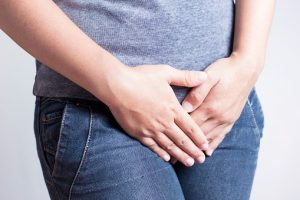 Urine leaks, or urinary incontinence, are common among women with osteoporosis, but new findings suggest urine leaks can be combated with physical therapy. Physical therapy to help improve urine leaks is focused on pelvic muscle training, which was shown to offer dramatic improvements.
Urine leaks, or urinary incontinence, are common among women with osteoporosis, but new findings suggest urine leaks can be combated with physical therapy. Physical therapy to help improve urine leaks is focused on pelvic muscle training, which was shown to offer dramatic improvements.
Researchers from the BC Women’s Hospital & Health Centre in Vancouver, British Columbia, and the University of Montreal, Quebec recruited 48 women over the age of 55 with osteoporosis and urine leakage.
Advertisement
Half of the women underwent 12 weeks of doctor-assisted physical therapy, which consisted of pelvic muscle strengthening and training with biofeedback, along with dietary changes. The other half of women went through a three-hour education program on physical activity, diet, and medications used for osteoporosis, one-on-one sessions with a dietician and physical therapist, and extensive follow-ups with health care providers.
The women all completed bladder diaries, incontinence and self-efficacy questionnaires, and pad tests, which measure urine leaks over 24 hours. Researchers who assessed the data were unaware about which of the women underwent which treatment.
After three months since the start of the study, the women who did physical therapy saw a 75 percent reduction in bladder leaks, and the other women did not improve at all. After one year’s time, the physical therapy women still saw a 75 percent reduction in bladder leaks, while the other women actually became worse. The physical therapy women also had better pad results and had better scores on the questionnaires.
The North American Menopause Society Executive Director JoAnn V. Pinkerton explained, “Many women with incontinence find themselves limiting physical activity out of fears of leakage. But women with bone loss or at risk for bone loss need strength training in addition to adequate calcium and vitamin D to prevent further bone loss and decrease fracture risk.”
